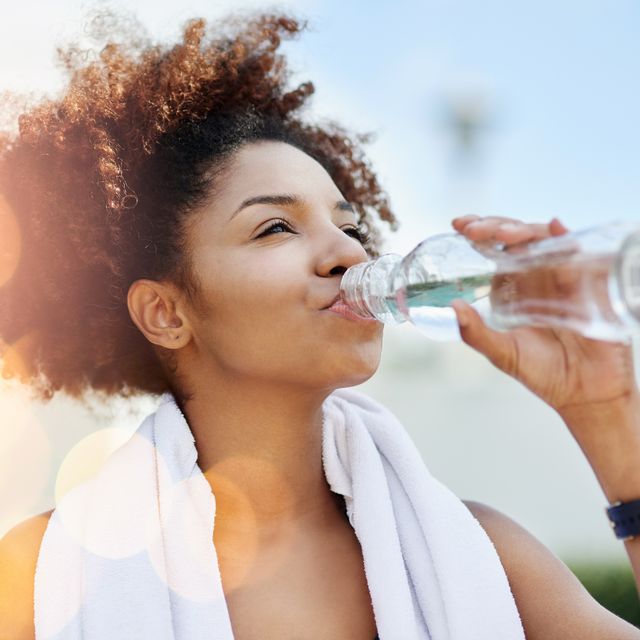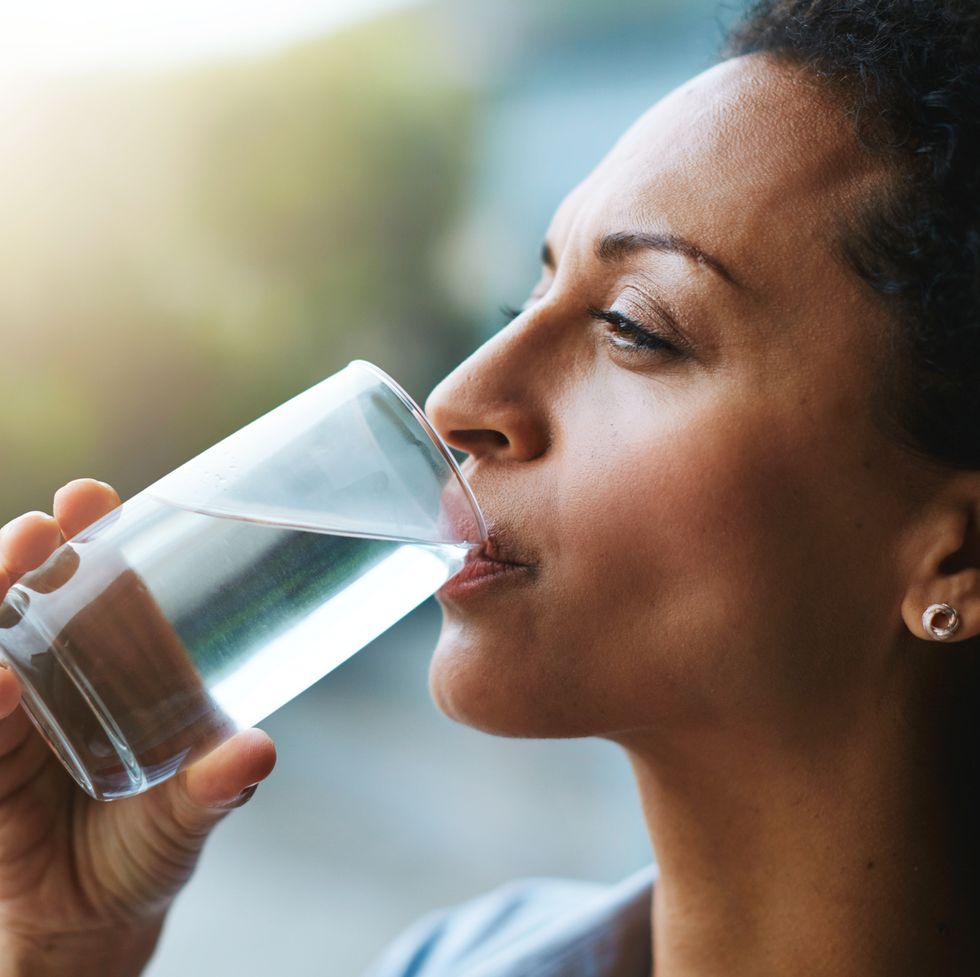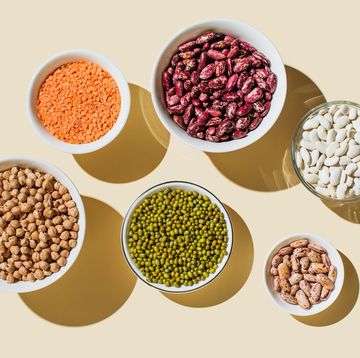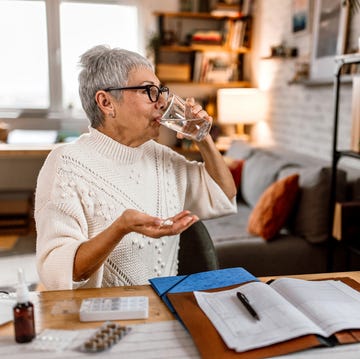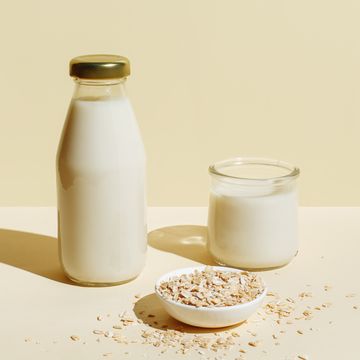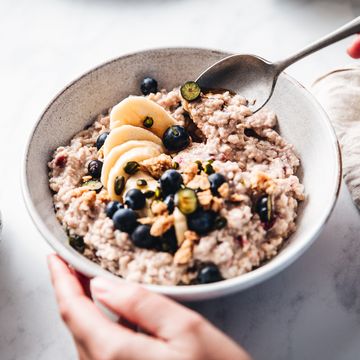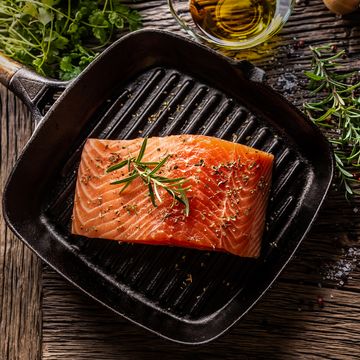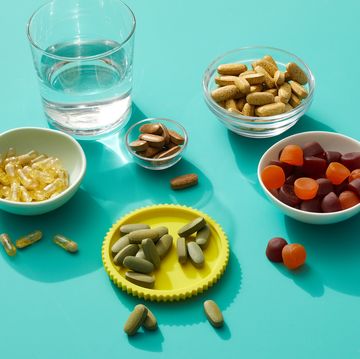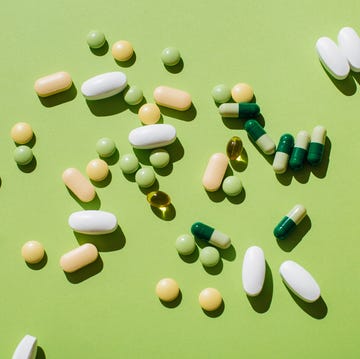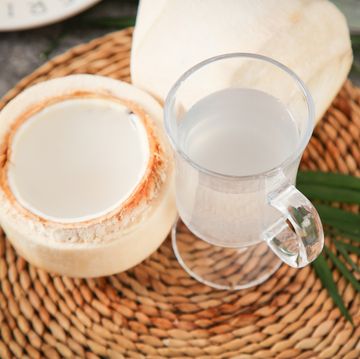Mom said to drink eight glasses of water a day — but was she right? It's complicated. "Traditional recommendations about water intake aren't so cookie cutter anymore," says Jaclyn London, M.S., R.D., C.D.N., a New York-based registered dietitian, author of Dressing on the Side (and Other Diet Myths Debunked) and host of the podcast On the Side with Jackie London, RD.
Whether or not Mom's wisdom holds up, one thing that's for certain is the fact that staying properly hydrated is one of the most important things we can do for our bodies and health. "Hydration is important all year long, it demands extra attention when the summer heat soars. Without proper hydration, you will be more susceptible to fatigue and dehydration, especially if you're engaging in outdoor activities, which raise your risk for emergency situations like heat exhaustion or heat stroke," says Marisa Moore, R.D.N., author of The Plant Love Kitchen.
So how much H20 do we really need each day? Downing eight glasses is a good general recommendation, London says, but if you're interested in getting more individualized, there are some factors to consider.
Factors to consider
- Sex: Recommended water intake levels depend largely on body size, muscle mass and sex. Males typically require more fluids than females because they tend to have less fatty tissue.
- Body weight: Typically, the greater a person's weight is, the more water they will require to be properly hydrated. It has also been shown that higher overall consumption of water and water containing foods, such as fruits and vegetables, may help in weight management.
- Climate: Living in a hot or humid climate, or at a higher altitude means you may have to drink more water.
- Activity: Anyone who works out on a regular basis should drink more water than someone who's sedentary. Not upping your fluid intake to match your exercise schedule can lead to some unpleasant consequences, especially in warmer weather.
- Medication: Certain medications may have a dehydrating effect or impact how much water someone should or shouldn't have. "There are some medications and dietary supplements that can affect hydration levels or require increased fluid intake, so it’s important to check in with your doctor for any special instructions," says Valerie Agyeman, R.D., dietitian and host of women's health podcast Flourish Heights.
How to calculate how much water to drink
The amount of water a person needs varies much like calories. A solid rule of thumb to calculate your personal hydration needs is to divide your weight in half and drink that many ounces — so if you weigh 160 pounds, aim for 80 ounces of H20 a day. We can also make a few other general approximations:
FAQs
What are the signs of dehydration?
One easy clue is to take a peek in the toilet after you pee — the color of your urine can tell you a lot. Your urine should be a pale yellow color, similar to the color of straw or light honey; if it's dark yellow, your body is telling you that you need to flood it with some fluids.
"Other signs of acute dehydration include sudden thirst, dry mouth, fatigue, dizziness and headache," says Agyeman. "Longer-term indicators of dehydration may include decreased urine output, dry skin, constipation, muscle cramps, and impaired concentration and mood."
What are the benefits of drinking water?
Your body needs water for so many reasons, the most basic of which is to be able to function at its overall best. That's because proper hydration helps with:
- Good digestion: "Water helps break down food, delivers nutrients to cells and aids in their absorption and facilitates the movement of waste through the digestive system and out," Agyeman says.
- Optimal brain function: "Staying properly hydrated promotes cognitive function and supports memory, focus and decision-making," Agyeman says. It also contributes to mood stabilization.
- Glowy skin: We need plenty of fluids to help our skin maintain its moisture, elasticity, and to reduce the risk of other skin issues such as itchiness, dullness, or fine lines and wrinkles.
- Healthy joints and muscles: Our joints need lubrication to keep away aches and creaks, and hydration plays a role in muscle contraction and tone.
- Body temp regulation: Staying hydrated also helps keep our body temperature where it needs to be.
How can I drink more water?
Drinking enough H20 may sound like a challenge to some, but making a few small changes can help you up your count even if you're not a water lover.
Is it possible to drink too much water?
You can have too much of anything, including water (although the chances of the average person overdoing it on H20 is unlikely). "Drinking excessive amounts of water may lead to water intoxication or hyponatremia (low sodium levels in the blood). Signs of over-hydration include frequent urination, swelling, nausea, confusion, fatigue, and weakness," Agyeman explains. "It's important to maintain a balanced approach to hydration and seek medical attention if you experience these symptoms."
If you feel so thirsty that you're sipping every other second, you may be experiencing excessive thirst, and you should consult your doctor ASAP; it could indicate an underlying condition that needs attention, such as type 2 diabetes.
..
Alyssa is a senior editor for the Hearst Health Newsroom, where she has written research-backed health content for Prevention, Good Housekeeping and Woman's Day since 2017. She has more than 13 years of reporting and editing experience and previously worked as research chief at Reader’s Digest, where she was responsible for the website's health vertical as well as editing health content for the print magazine. She has also written for Chowhound, HealthiNation.com, Huffington Post and more.
Stefani (she/her) is a registered dietitian, a NASM-certified personal trainer and the director of the Good Housekeeping Institute Nutrition Lab, where she handles all nutrition-related content, testing and evaluation. She holds a bachelor’s degree in nutritional sciences from Pennsylvania State University and a master’s degree in clinical nutrition from NYU. She is also Good Housekeeping’s on-staff fitness and exercise expert. Stefani is dedicated to providing readers with evidence-based content to encourage informed food choices and healthy living. She is an avid CrossFitter and a passionate home cook who loves spending time with her big fit Greek family.
